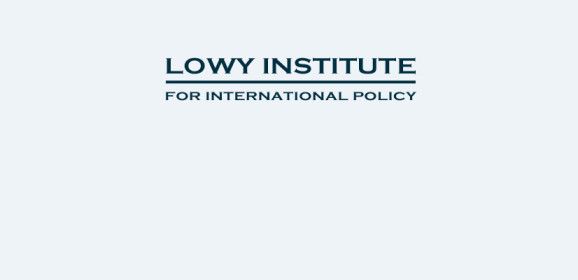Section: Lowy Institute for International Policy (Australia)
The strategic consequences of Brexit
If Britain votes to leave the EU on 23 June, it may well represent the greatest strategic shock to the continent since the breakup of the Soviet Union and consequent reunification of Germany a quarter century ago. The balance of power and influence between Britain, France and Germany – a crucial variable in European geopolitics for hundreds of...
Putin: Russia’s last ‘pro-Western’ alternative
The West tends to anticipate the eventual downfall of Vladimir Putin with certain exuberance and optimism due to expectations of a more ‘pro-Western’ alternative or even the return of Yeltsin-era policies. The anti-Russian sanctions following Moscow’s seizure of Crimea were envisioned to turn the population, business community and...
The G7 asserts its like-mindedness
The G7 countries of the US, UK, Germany, France, Italy, Japan and Canada have met for the 42nd time in Japan to discuss the biggest risks to global security and the world economy. Here is their 32-page official statement. The G7 is an interesting grouping, often seen as outdated with its heavy European influence. How much do Italy’s...
David Cameron didn’t always think the EU was essential to peace
Here’s David Cameron yesterday in a major speech on the Brexit referendum (my emphasis): It’s barely been 20 years since war in the Balkans and genocide on our continent in Srebrenica. In the last few years, we have seen tanks rolling into Georgia and Ukraine. And of this I am completely sure. The European Union has helped reconcile...
Digital Diplomacy links: UN #NextSG, Frank Underwood, Popegrams, army blogging and more
As Australian digital diplomacy strives to catch up to rest of the world, these monthly links highlight the most creative and effective ways countries are leveraging the internet for foreign policy gain. A fantastic blog post by @Lorey explaining how the UK’s UN mission used Twitter (and hashtag #NextSG) to bring the public into the room...
Four reasons why a frontrunner for UN chief remains elusive
Earlier this month, nine candidates for UN secretary-general (SG) sat in the hot seat for a first round of unprecedented ‘informal dialogues’ before the UN General Assembly. Over the course of three days, the candidates rotated in two-hour slots, fielding some 800 questions from member states, civil society groups, and the public....
IMF doesn’t need a bigger empire to operate a better safety net
‘Too slow for too long’. This is the title of the just-released IMF World Economic Outlook. Global growth has been stuck in a rut, running between 3% and 3.5% for the past four years, and the forecast numbers are not much stronger. Policy-makers have become inured to this persistently feeble performance, with policy unresponsive to the...
The race for secretary-general: Where’s Kevin?
Kevin Rudd was at the center of attention at the UN this week, mainly because he wasn’t there. Nine candidates to be the next UN secretary-general addressed the General Assembly between Tuesday and Thursday. Star attractions included two former prime ministers: Antonio Guterres of Portugal and Helen Clark of New Zealand. But there was much...
Two years after Euromaidan, Ukraine is faction-ridden and the economy is wilting
To the chagrin of the EU’s governing elite, a ‘ballot box rebellion’ in a single state again threatens to derail a major initiative years in the making. On Wednesday, a referendum in the Netherlands asked whether the government should ratify the European Union’s March 2014 Association Agreement with Ukraine: 61.1% of those...
Russia’s success in Syria signals an emerging multipolar world order
The silence from Western capitals as ISIS fled Palmyra was as deafening as it was understandable. In Syria, history has refused to follow the script. On 2 October last year, US President Barack Obama warned that ‘a military solution alone. . . an attempt by Russia and Iran to prop up Assad is just going to get them stuck in a quagmire and...



